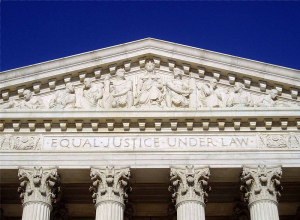Funding Civil Legal Aid
 Alberta Darling had a lot on her plate in the late winter of 2011. As co-chairman of the Joint Finance Committee in the Wisconsin Legislature, the 66-year-old senator from River Hills, described on her website as having “a passion for protecting, educating, and improving the lives of children,” was one of the chief stewards of Governor Scott Walker’s Budget Repair Bill, the legislation that would spark one of the fiercest protests in the history of Wisconsin, and in fact, force Senator Darling to face a recall election.
Alberta Darling had a lot on her plate in the late winter of 2011. As co-chairman of the Joint Finance Committee in the Wisconsin Legislature, the 66-year-old senator from River Hills, described on her website as having “a passion for protecting, educating, and improving the lives of children,” was one of the chief stewards of Governor Scott Walker’s Budget Repair Bill, the legislation that would spark one of the fiercest protests in the history of Wisconsin, and in fact, force Senator Darling to face a recall election.
But if threats of protests and recalls and the prospect of voter dissatisfaction would not cause her to veer off course, it was not surprising that the promise and presence of $2.6 million in civil legal aid — money designated to help poor people with legal problems — was no deterrent. That the funding did not come from tax revenue but instead from a court surcharge was meaningless. That Wisconsin had been the second last state in the country to fund civil legal aid was irrelevant. The money disappeared.
Well not quite disappeared. In a twist that still rankles those who worked so hard to get that money into the budget, Senator Darling’s committee did not cut the funding from the budget, it gave the money to district attorneys.

